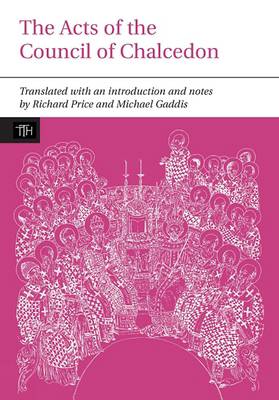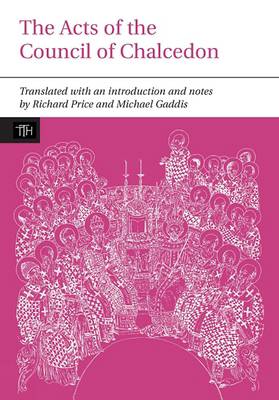
- Afhalen na 1 uur in een winkel met voorraad
- Gratis thuislevering in België vanaf € 30
- Ruim aanbod met 7 miljoen producten
- Afhalen na 1 uur in een winkel met voorraad
- Gratis thuislevering in België vanaf € 30
- Ruim aanbod met 7 miljoen producten
The Acts of the Council of Chalcedon
Omschrijving
The Council of Chalcedon in 451 was a defining moment in the Christological controversies that tore apart the churches of the Eastern Roman Empire in the fifth and sixth centuries. Theological division, political rivalry and sectarian violence combined to produce what ultimately became separate Chalcedonian and non-Chalcedonian churches, a schism that persists to this day. Whether seen as a milestone in the development of orthodox doctrine or as a divisive and misguided cause of schism, Chalcedon is chiefly remembered for its Definition of Faith, a classic expression of Christian belief in Christ as both God and man. The council also dealt with other contentious issues relating to individuals and to the rights of various sees; its famous Canon 28 was crucial in the development of the patriarchate of Constantinople. Little attention, however, has been devoted to the process by which these results were reached, the day-by-day deliberations of the council as revealed in its Acts. These are particularly illuminating for the politics of the late antique church and its relations with the civil power, and contain moments of high drama. This edition, based on both the Greek and Latin versions of the Acts, is the first translation in a modern western language, and the first annotated edition. In addition to the minutes, it includes a selection of the attendant documentation, relating to imperial policy and the stance of the papacy.
Specificaties
Betrokkenen
- Vertaler(s):
- Uitgeverij:
Inhoud
- Aantal bladzijden:
- 1024
- Taal:
- Engels
- Reeks:
- Reeksnummer:
- nr. 45
Eigenschappen
- Productcode (EAN):
- 9781846311000
- Verschijningsdatum:
- 1/05/2007
- Uitvoering:
- Paperback
- Formaat:
- Trade paperback (VS)
- Afmetingen:
- 161 mm x 220 mm
- Gewicht:
- 1360 g

Alleen bij Standaard Boekhandel
Beoordelingen
We publiceren alleen reviews die voldoen aan de voorwaarden voor reviews. Bekijk onze voorwaarden voor reviews.








